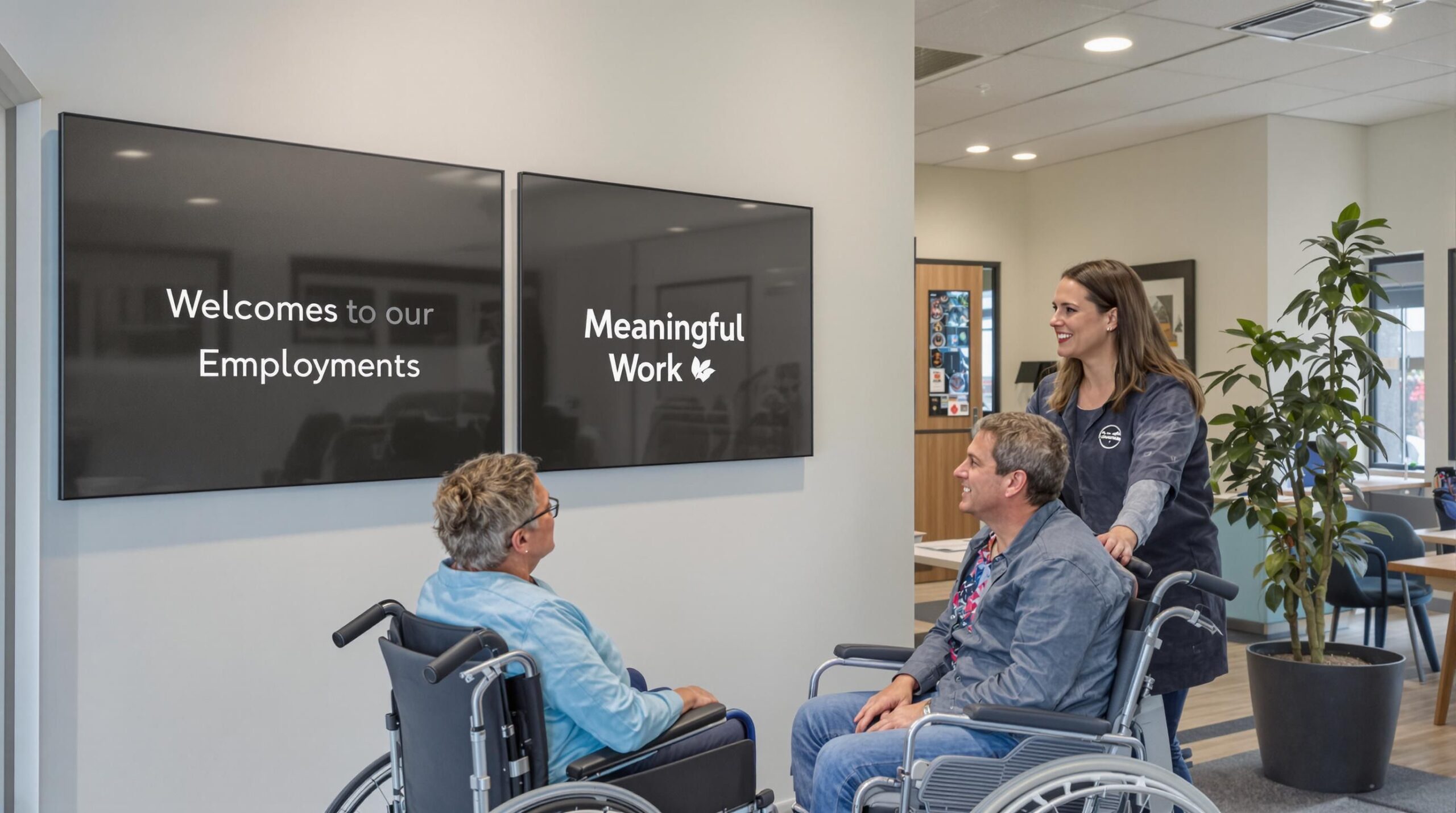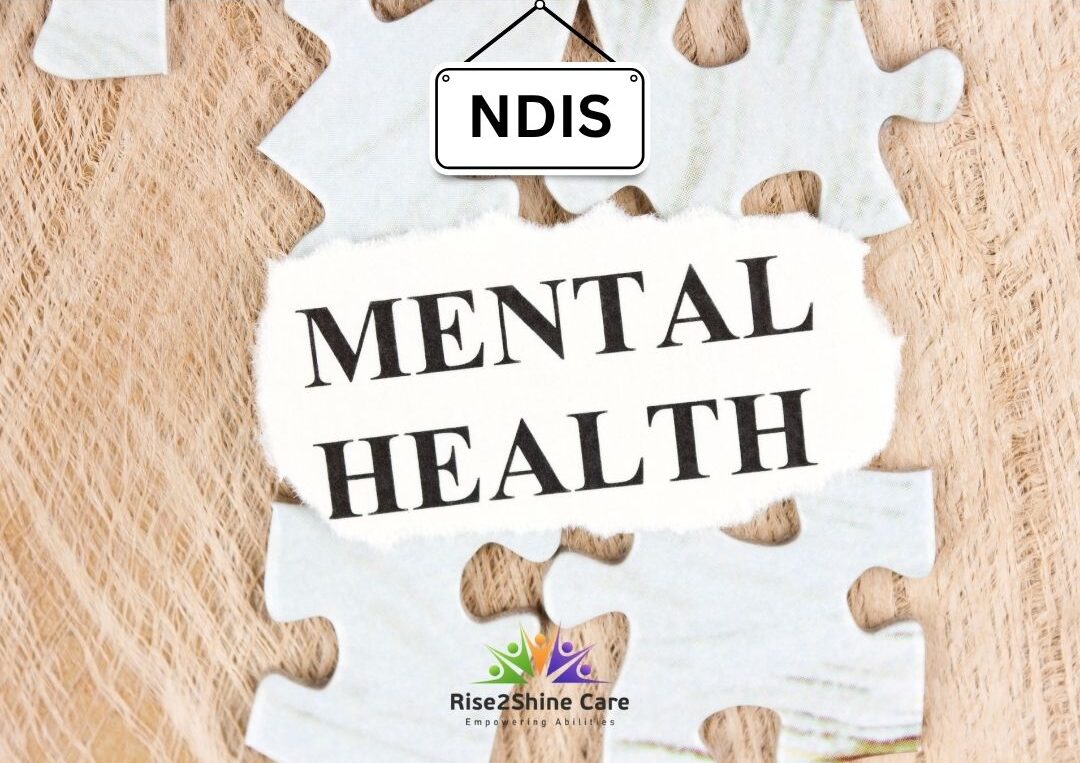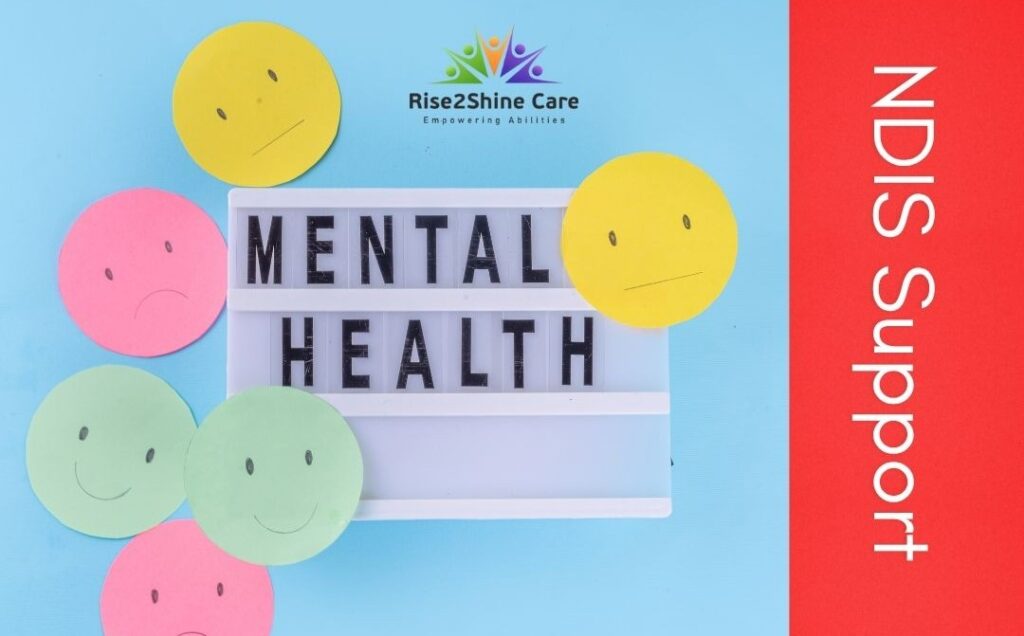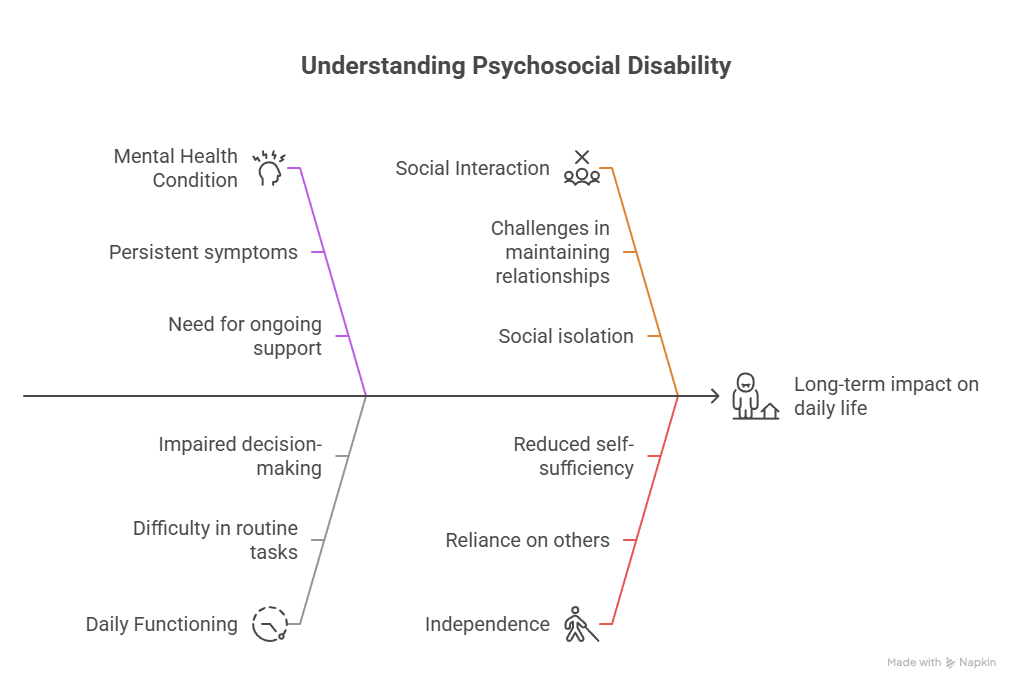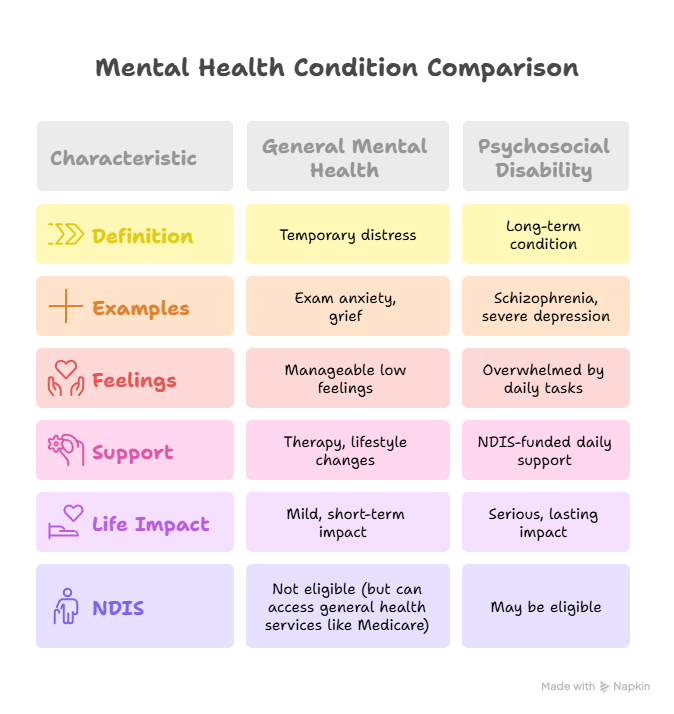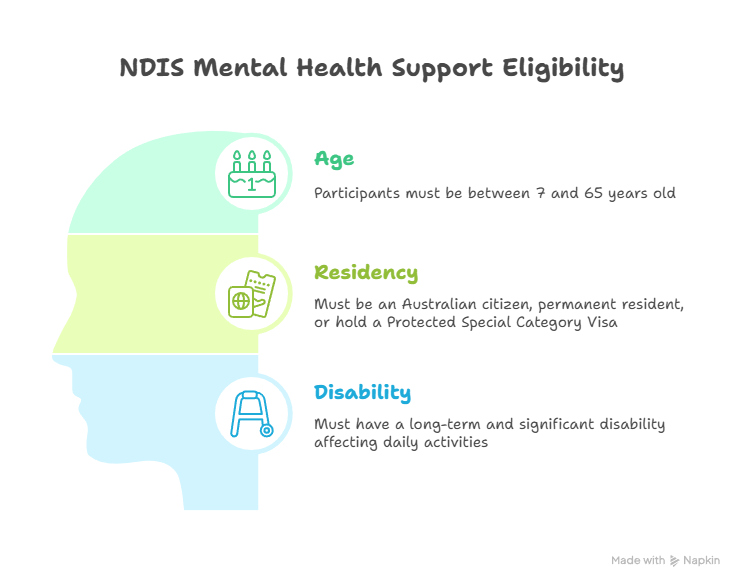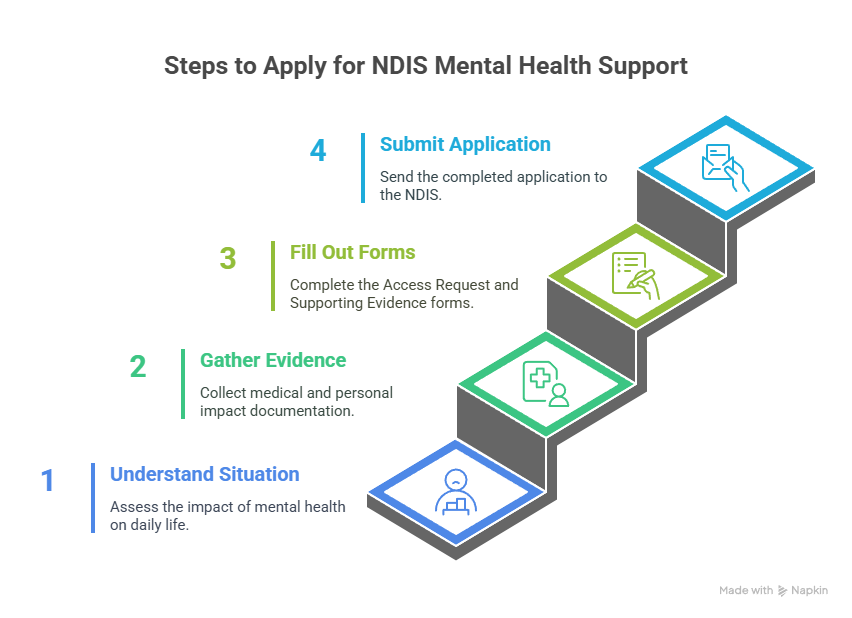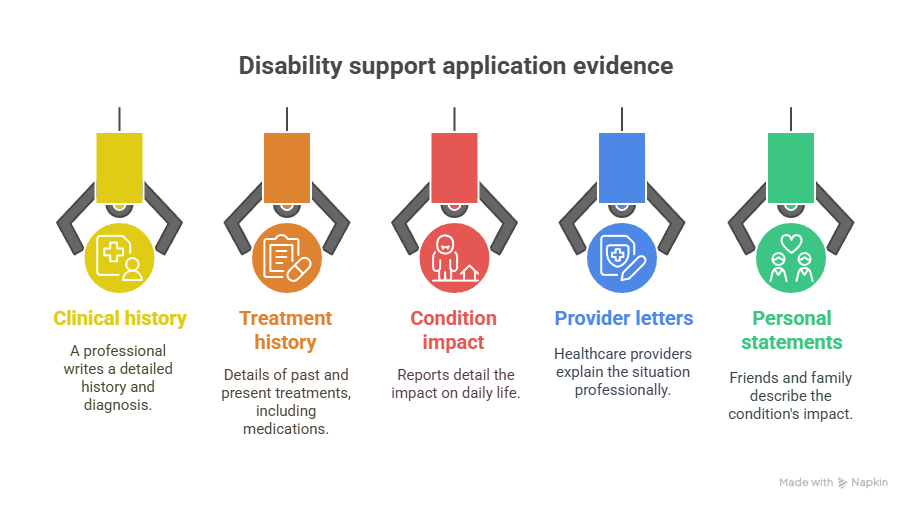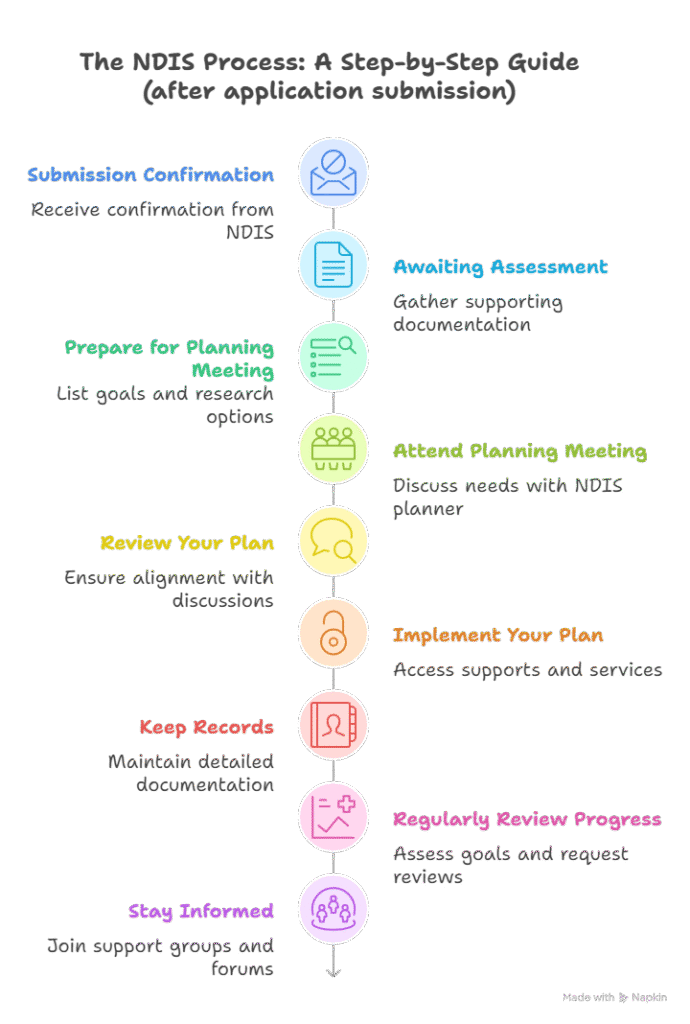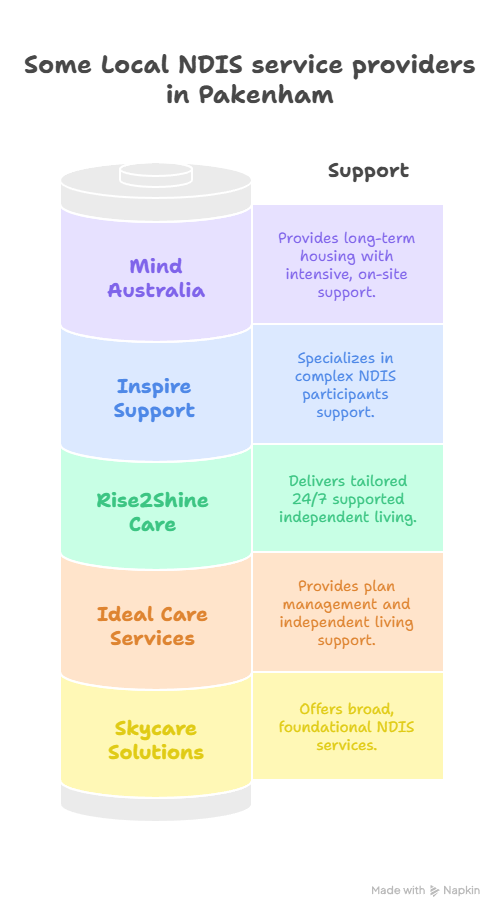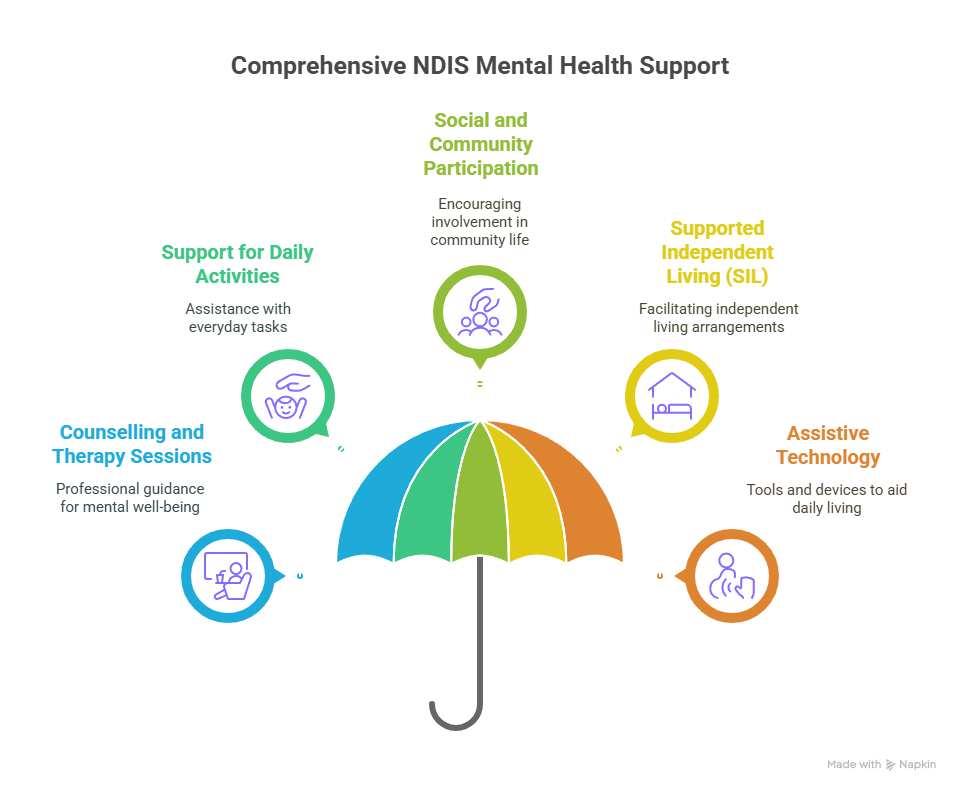Assistance With Daily Living: NDIS Services Pakenham 2025
July 28, 2025 | Uncategorized | No Comments

Assistance with daily living under the NDIS changes lives for Pakenham locals. Around 4.4 million Australians are living with some form of disability, making tailored support a massive need in every community. Most people think support just covers the basics like cleaning and meals, but the real impact is about building independence and helping people not just get by, but actually thrive — even long term.
Table of Contents
- Understanding Assistance With Daily Living
- NDIS Funding For Daily Living Support
- Choosing The Best Disability Support In Pakenham
- Long-Term Benefits For Permanent Disabilities
Quick Summary
| Takeaway | Explanation |
|---|---|
| Daily living support is highly personalized | Each participant’s needs are different, requiring tailored assistance to enhance independence and quality of life. |
| NDIS funding covers multiple support categories | Funding includes personal care, household management, community participation, and skill development, tailored to individual circumstances. |
| Choose a provider that prioritizes person-centred services | Effective disability support should focus on individual goals and specific support needs tailored to participants’ lives. |
| Long-term support benefits health and independence | Ongoing assistance helps prevent secondary health issues, promotes overall well-being, and enhances personal autonomy over time. |
| Engagement with community is crucial | Long-term strategies should encourage social connections and active community participation for improved quality of life. |
Understanding Assistance With Daily Living
Assistance with daily living represents a critical support system for individuals with disabilities, helping them maintain independence and improve their quality of life. The National Disability Insurance Scheme (NDIS) provides comprehensive support designed to empower participants in managing everyday tasks and personal care needs.
What Constitutes Daily Living Support
Daily living assistance encompasses a wide range of personalised support services tailored to individual requirements. According to the National Disability Insurance Agency, these services typically include help with personal care, household tasks, community participation, and skill development. These supports are not about replacing an individual’s capabilities but enhancing their ability to perform tasks independently.

Support can vary significantly between participants. For someone with a physical disability, this might mean assistance with mobility, personal hygiene, or meal preparation. For individuals with cognitive disabilities, support could involve developing life skills, managing daily routines, or learning communication strategies. Research from the Australian Institute of Health and Welfare indicates that approximately 4.4 million Australians live with some form of disability, highlighting the critical importance of personalised daily living support.

The Personalised Nature of Support
The key principle of assistance with daily living is personalisation. Each individual’s support plan is unique, reflecting their specific needs, goals, and circumstances. This approach ensures that participants receive targeted help that genuinely improves their daily experiences. Check out our comprehensive guide on personalised daily support to understand how we tailor our services.
For Pakenham residents, this means working closely with NDIS planners and support coordinators to develop a plan that addresses individual challenges. Whether it’s help with cooking, cleaning, personal care, or transportation, the goal remains consistent: to promote maximum independence and participation in community life.
Understanding assistance with daily living is not just about managing tasks but about empowering individuals to live fulfilling, self-directed lives. It represents a collaborative approach where participants, their families, and support providers work together to create meaningful, achievable goals that enhance overall quality of life.
Here is a summary table outlining key examples of daily living support services, as mentioned in this section:
| Type of Support | Examples |
|---|---|
| Personal Care | Bathing, dressing, meal preparation |
| Household Management | Cleaning, shopping, maintaining living spaces |
| Community Participation | Social interactions, community engagement |
| Skill Development | Life skills, communication strategies, managing routines |
| Mobility Assistance | Help with moving around, transport to activities |
NDIS Funding for Daily Living Support
NDIS funding for daily living support provides a critical financial framework that enables individuals with disabilities to access personalised assistance tailored to their unique needs. Understanding the nuanced approach to funding is essential for participants seeking comprehensive support in Pakenham and across Victoria.
Funding Categories and Allocation
The National Disability Insurance Agency (NDIA) structures funding for daily living support across multiple categories, each designed to address specific participant requirements. According to the Australian National Audit Office, in 2021-2022, approximately 55% of NDIS participants aged seven or older included Assistance with Daily Life (ADL) supports in their plans, with an average annual value of $96,996 per participant.
Funding typically encompasses several key support domains:
- Personal Care Support: Assistance with daily personal activities like bathing, dressing, and meal preparation
- Household Management: Help with cleaning, shopping, and maintaining living spaces
- Community Participation: Support for social interactions, skill development, and community engagement
- Capacity Building: Interventions aimed at enhancing independent living skills
Below is a table summarising key NDIS funding statistics and categories mentioned in this section:
| Statistic/Category | Details |
|---|---|
| % of NDIS participants (age 7+) with ADL supports | 55% (2021-2022) |
| Avg. annual value of ADL supports per participant | $96,996 (2021-2022) |
| Personal Care Support | Bathing, dressing, meal preparation |
| Household Management | Cleaning, shopping, maintaining living spaces |
| Community Participation | Social interaction, skill development, community engagement |
| Capacity Building | Enhancing independent living skills |
Individualised Funding Approach
The NDIS employs a highly personalised funding model that recognizes the diverse needs of participants. Research from the NDIS emphasizes an evidence-based approach to funding allocation, ensuring that supports are tailored to individual goals and circumstances. This means funding is not a one-size-fits-all solution but a flexible mechanism designed to address specific disability-related challenges.
For Pakenham residents, this translates to a funding strategy that considers factors such as:
- Severity and nature of disability
- Individual support requirements
- Potential for skill development and increased independence
- Long-term personal and professional goals
Participants can access detailed information about their potential supports through our comprehensive guide to daily living services, which breaks down the funding process and potential support options.
It is crucial to understand that NDIS funding for daily living support is not meant to replace existing community or family support but to complement and enhance existing care networks. The ultimate goal remains empowering participants to achieve greater independence, improve quality of life, and participate more fully in community activities.
Navigating the intricacies of NDIS funding can seem complex, but with proper guidance and understanding, participants can unlock a world of personalized support designed to meet their unique needs and aspirations.
Choosing the Best Disability Support in Pakenham
Selecting the right disability support service is a critical decision that can significantly impact an individual’s quality of life, independence, and personal growth. For Pakenham residents navigating the National Disability Insurance Scheme (NDIS), understanding the key factors in choosing a disability support provider is essential.
Evaluating Support Provider Capabilities
Choosing an effective disability support provider requires a comprehensive assessment of their expertise, approach, and alignment with individual needs. According to research from the National Academies of Sciences, Engineering, and Medicine, effective disability services should prioritize personalized, evidence-based interventions that actively engage participants and their families.
Key considerations when selecting a disability support provider include:
- Specialization and Experience: Look for providers with demonstrated expertise in specific disability types and support needs
- Staff Qualifications: Verify professional credentials, training, and ongoing professional development
- Person-Centered Approach: Ensure the provider values individual goals, preferences, and autonomy
- Comprehensive Service Range: Assess the breadth of support services offered
Personalised Support Assessment
The Commonwealth Fund’s research on disability support systems emphasizes the importance of person-centered planning. For Pakenham residents, this means finding a provider that goes beyond generic support and creates tailored strategies addressing unique personal circumstances.
Consider scheduling initial consultations with potential providers to:
- Discuss specific support requirements
- Understand their approach to individualized care
- Evaluate their communication and collaboration methods
- Explore how they develop and adapt support plans
When searching for the most suitable support, explore our comprehensive guide to selecting the right NDIS service provider to gain deeper insights into making an informed decision.
Effective disability support is more than a service. It is a partnership that empowers individuals to achieve their personal goals, enhance independence, and participate fully in community life. By carefully evaluating potential providers and prioritizing personalized, holistic support, Pakenham residents can find a disability support service that truly meets their unique needs and aspirations.
Long-Term Benefits for Permanent Disabilities
Long-term support for individuals with permanent disabilities represents a critical aspect of maintaining quality of life, independence, and personal dignity. The National Disability Insurance Scheme (NDIS) provides a comprehensive framework designed to address the unique and evolving needs of participants with permanent and significant disabilities.
Health and Wellness Outcomes
Research published in PubMed demonstrates that adequate personal assistance with daily living activities significantly improves both physical and mental health for individuals with severe disabilities. For people with permanent disabilities, consistent and tailored support can prevent secondary health complications and promote overall well-being.
The long-term benefits extend beyond immediate medical considerations and encompass multiple dimensions of health:
- Physical Health Maintenance: Preventing secondary medical conditions through consistent care
- Mental Health Support: Reducing isolation and enhancing psychological resilience
- Preventative Care: Minimizing potential health risks associated with disability
- Comprehensive Wellness Management: Holistic approach to individual health needs
Independence and Quality of Life
The Commonwealth Fund’s research highlights the critical importance of integrating long-term services with comprehensive care strategies. For Pakenham residents with permanent disabilities, this means developing support mechanisms that progressively enhance personal autonomy and community participation.
A detailed study on home-based rehabilitation revealed significant improvements in participants’ balance, autonomy, and overall quality of life through sustained assistance. This underscores the transformative potential of well-designed, person-centered disability support.
Key strategies for maximizing long-term benefits include:
- Regularly reassessing and adapting support plans
- Focusing on skill development and capacity building
- Encouraging social and community engagement
- Supporting personal growth and individual aspirations
Learn more about our personalised long-term support approach and how we help individuals with permanent disabilities achieve their potential.
Ultimately, long-term support for permanent disabilities is about more than managing challenges. It is about creating opportunities, fostering independence, and empowering individuals to lead fulfilling, meaningful lives. By recognizing each person’s unique strengths and potential, we can transform disability support from a mere service into a pathway for personal achievement and community inclusion.
Frequently Asked Questions
What is assistance with daily living under the NDIS?
Assistance with daily living under the NDIS refers to personalized support services that help individuals with disabilities manage daily tasks and enhance their independence. This can include personal care, household management, community participation, and skill development.
How does NDIS funding work for daily living support?
NDIS funding for daily living support is structured across multiple categories tailored to individual needs. It covers areas like personal care, household tasks, and community engagement, with funding reflecting each participant’s specific requirements and circumstances.
How can I choose the best disability support provider in Pakenham?
To select the best disability support provider, evaluate their expertise, staff qualifications, person-centred approach, and the range of services they offer. Consultations with potential providers can also help assess their suitability for your specific support needs.
What are the long-term benefits of assistance with daily living for permanent disabilities?
The long-term benefits of assistance with daily living include improved physical and mental health, enhanced independence, and a higher quality of life. Ongoing support can prevent health complications and promote personal autonomy and community participation.
Transform Your Daily Living With Local NDIS Care Experts
Struggling to find reliable, personalised daily living support in Pakenham can leave you feeling isolated and unsure about your options. The article highlighted the challenge of needing more than basic help, especially when it comes to meaningful assistance that actually builds independence, health and community connection. Whether you are seeking tailored care plans or ongoing everyday support, your goals and comfort deserve the highest priority.

Ready to move beyond the basics and experience truly person-centred assistance with daily living? Connect with the team at Rise2Shine Care for expert NDIS services right here in Pakenham. Take the first step with a free consultation and discover how we develop custom care solutions designed just for you. For additional options and resources, explore our Uncategorized – Rise 2 Shine section. Now is your moment to secure personalised NDIS support that matches your life. Contact us today and rediscover the confidence to thrive every day.

